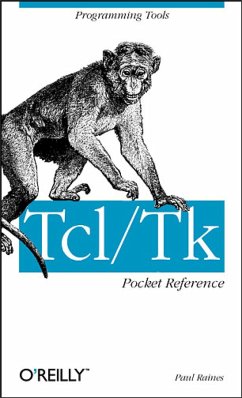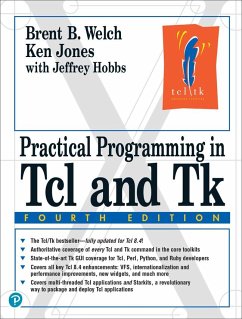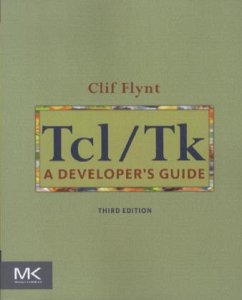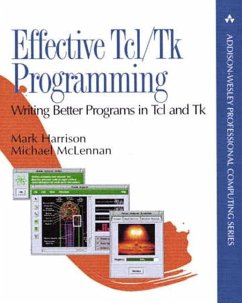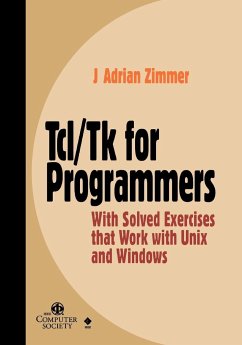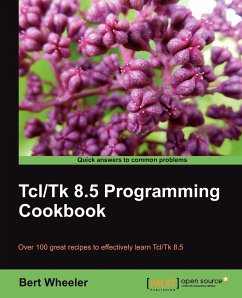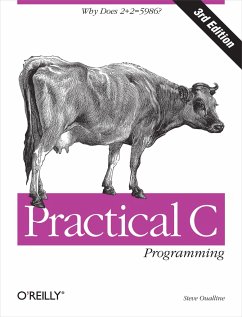Nicht lieferbar

Tcl/TK in a Nutshell
A Desktop Quick Reference
Versandkostenfrei!
Nicht lieferbar
Weitere Ausgaben:
The Tcl language and Tk graphical toolkit are simple and powerful building blocks for custom applications. The Tcl/Tk combination is increasingly popular because it lets you produce sophisticated graphical interfaces with a few easy commands, develop and change scripts quickly, and conveniently tie together existing utilities or programming libraries. One of the attractive features of Tcl/Tk is the wide variety of commands, many offering a wealth of options. Most of the things you'd like to do have been anticipated by the language's creator, John Ousterhout, or one of the developers of Tcl/Tk'...
The Tcl language and Tk graphical toolkit are simple and powerful building blocks for custom applications. The Tcl/Tk combination is increasingly popular because it lets you produce sophisticated graphical interfaces with a few easy commands, develop and change scripts quickly, and conveniently tie together existing utilities or programming libraries. One of the attractive features of Tcl/Tk is the wide variety of commands, many offering a wealth of options. Most of the things you'd like to do have been anticipated by the language's creator, John Ousterhout, or one of the developers of Tcl/Tk's many powerful extensions. Thus, you'll find that a command or option probably exists to provide just what you need. And that's why it's valuable to have a quick reference that briefly describes every command and option in the core Tcl/Tk distribution as well as the most popular extensions. Keep this book on your desk as you write scripts, and you'll be able to find almost instantly the particular option you need. Most chapters consist of alphabetical listings. Since Tk and mega-widget packages break down commands by widget, the chapters on these topics are organized by widget along with a section of core commands where appropriate. Contents include: Core Tcl and Tk commands and Tk widgets - C interface (prototypes) - Expect - (incr Tcl) and (incr Tk) - Tix - TclX - BLT - OraTcl, SybTcl, and Tclodbc.





